30 Years of GMS Economic Cooperation Program

25th GMS Ministerial Conference
The theme, “Accelerating Economic Recovery to Expand 30 Years of GMS Achievements Toward Inclusive and Sustainable Development,” reflects the special significance of this event. As the first ministerial conference after the 7th GMS Summit in 2021, the 25th GMS Ministerial Conference provides opportunity to follow up on GMS Leaders’ mandates for an innovative and robust recovery path to achieve the new GMS vision of a more integrated, prosperous, sustainable, and inclusive subregion. It is also a celebratory occasion as this year marks the GMS Program’s 30th Anniversary. It will commemorate the Program’s significant achievements in the last three decades.

GMS 30 Years of Cooperation Infographics
Since the inception of the Greater Mekong Subregion (GMS) Economic Cooperation Program in 1992, it has achieved noteworthy successes in fostering regional cooperation in a region that was emerging from a period of prolonged regional conflict. This infographic showcases achievements, presents guideposts of GMS Program today, and highlights the medium-term pipeline of priority projects.
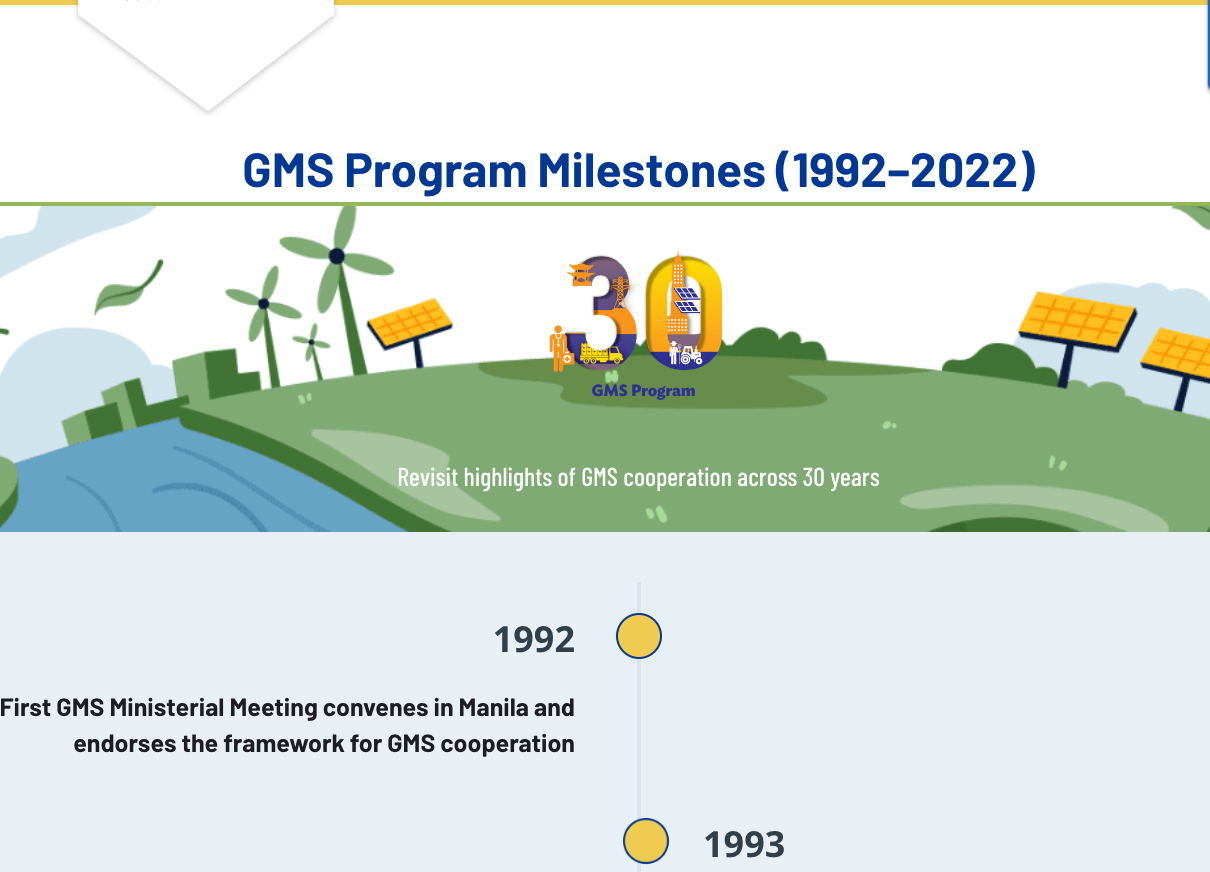
GMS Program Milestones (1992–2022)
Over three decades of regional cooperation. View a timeline of our history.

GMS Thirty Moments
Read how GMS Program support is improving the subregion and uplifting the lives of people in its member countries.

Regional Investment Framework 2023-2025
The Regional Investment Framework 2023-2025 (RIF 2025)is a pipeline of near-term priority projects which align with the strategies, goals, and thematic priorities set in GMS 2030. The new RIF focus on mobilizing project financing with a three-year rolling pipeline, starting with RIF 2023–2025, and extended forward each year with updated projects to add or drop. This new RIF 2025 incorporates a new project proposal process and project criteria.
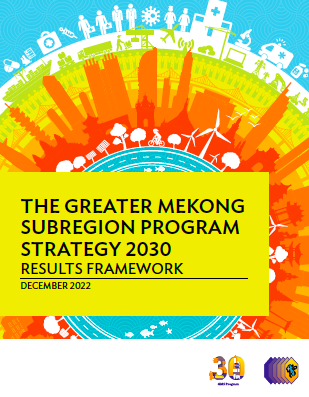
The Greater Mekong Subregion Program Strategy 2030: Results Framework
The GMS Secretariat, in close coordination with GMS countries, will prepare a results framework to trace the implementation of GMS-2030 and its progress toward achieving the vision and program mission. The framework will monitor and steer the strategy, and will itself be supported by detailed sector-specific results frameworks that will be developed by the respective GMS sector working groups. The GMS Secretariat will provide guidance and support to the process of developing the sector results frameworks.
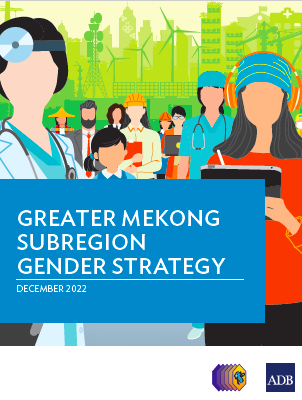
Greater Mekong Subregion Gender Strategy
A new GMS Economic Cooperation Strategic Framework 2030 (GMS-2030) will support enhanced regional cooperation and promote equitable sharing of the benefits of regional integration as the region begins to rebuild after the COVID-19 pandemic. If the benefits of regional integration are to be shared more equally, gender equality needs to be a focus. Gender equality is intrinsically linked to development, prosperity, and sustainability. Without the equal participation of men and women there can be no sustainability or inclusive growth. This GMS Gender Strategy is designed to support the GMS‑2030 ambition of equitable sharing of benefits, by identifying opportunities to advance gender equality in GMS program activities.
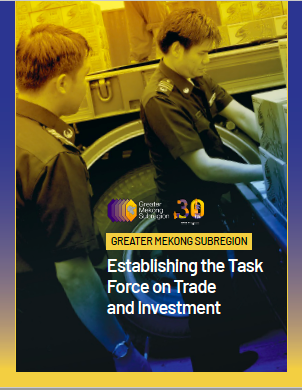
Establishing the Task Force on Trade and Investment
The Greater Mekong Subregion (GMS) Economic Cooperation Program Strategic Framework 2030 (GMS 2030) mandates the GMS Program to continue its efforts to develop trade and investment facilitation in the subregion and beyond. Specifically, GMS 2030 states that “new sector working groups or taskforces will be formed to support the critical areas such as trade and investment facilitation.”
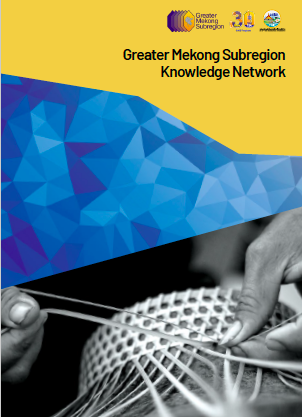
Greater Mekong Subregion Knowledge Network
The objective of the Greater Mekong Subregion (GMS) Knowledge Network (GMSKN) is to provide expertise, stimulate discussion, and raise awareness on relevant and emerging issues in the GMS.

Greater Mekong Subregion Digital Economy Cooperation Initiative
Digitalization is central to the efforts of the GMS to build a robust, regionally integrated economy in 2030, one that is better able to withstand a competitive external environment, fully equipped to seize new opportunities, and capable of addressing the medium- to long-term challenges of economic and social risks brought by the coronavirus disease (COVID-19) pandemic. The GMS 2030 encourages members to promote inclusive digitalization and the use of advanced technologies in all GMS Program activities and projects.

Deepening Development Partners' Engagement in the Greater Mekong Subregion Program
The GMS Secretariat subsequently initiated a study to explore new approaches to strengthening development partnerships in the GMS Program based on comprehensive consultations with development partners and member countries. This report presents the findings and recommendations of the study for consideration of GMS senior officials.
